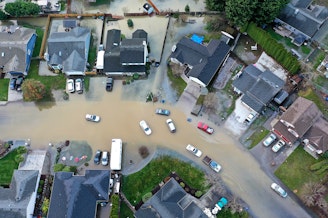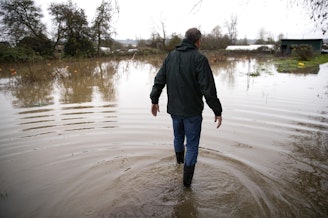Multiyear canoe journey highlights the value of Indigenous knowhow to fight climate change
A replica of an ancient Polynesian canoe, called Hōkūleʻa, will be at Seattle’s Pier 62 for the next few days. It’s one stop of many on it’s multiyear journey around the Pacific Ocean. They'll be making stops as it heads to South America before launching off into the Pacific islands and reaching Aotearoa, the Māori-language name for New Zealand, by 2025.
Nainoa Thompson is helping guide the journey alongside others using traditional ways of traveling the ocean that have been passed down for millenia. Thompson is what's known as a "Pwo navigator," a title given to someone trained in non-western methods to navigate the Pacific Ocean. He learned the craft from Mau Piailug, a master navigator from the island of Satwatal. Thompson is a Native Hawaiian who can trace his lineage to Kamehameha I, the first ruler of the Kingdom of Hawaii.
Thompson said the multiyear canoe journey is motivated by a long held philosophy about the oceans.
“We’re sailing for a belief that the ocean's connections to our people is everything, so we’re protecting essentially the security and future of our children,” he said.
A feather tied to the back mast on the canoe belonged to a family who organizers say lost everything in the fires on Maui earlier this month.
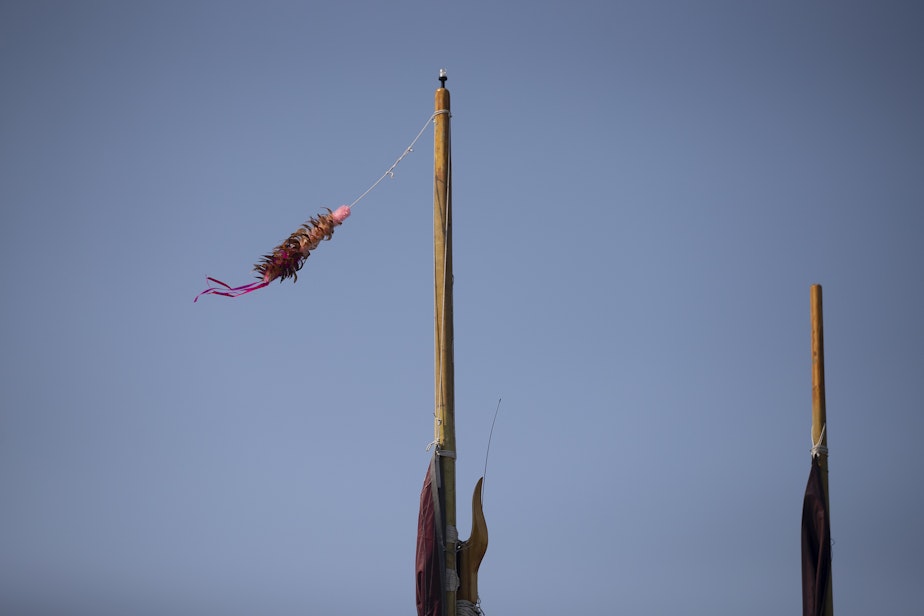
Climate change is one of the factors that led to the Maui fires and their ferocity. It's also one of the reasons Thompson and others decided to organize their journey across the Pacific.
Thompson said the original peoples of the Pacific Northwest know how to be sustainable and take care of the waters. It is to those groups that we should look to when exploring ways to counteract climate change and protect the health of planet Earth.
“Why wouldn't you because you've been here for 12 to 14,000 years,” he said.
As it made it’s way into the dock, Hōkūleʻa, its crew, and other smaller Hawaiian canoes were greeted by canoes from the Muckleshoot and Suquamish tribes. At the pier other Indigenous groups, and native Hawaiians living in the Pacific Northwest were also watching.
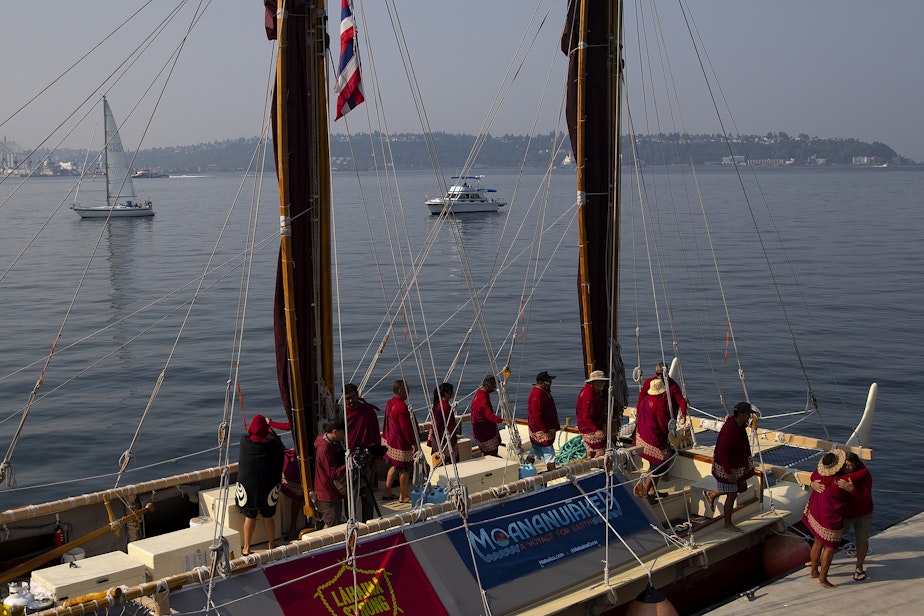
Willard Bill Jr. is an educator on Muckleshoot history, and a member of a canoe family. He said despite centuries of being overlooked, Indigenous knowledge of navigating the oceans, as well as methods of sustainable living are now being recognized by people outside of Indigenous communities.
“We always had the science and the math, right?" he said. "They may not show in these public schools and private schools, but we always knew these things.”
Recently the city of Seattle held a summit with some of the region's tribal nations and Urban Native Organizations, from which a major focus for the city was to acknowledge and uphold treaty obligations.
Bill Jr. said the summit represents a turning point and a new level of coordination between Western officials and Indigenous peoples.
“We're no longer taking a backseat," he said. "We come first. Not these ferries not these ships out here. It's us this is our homeland.”
Sponsored
The tribes rely on treaties as a means of protecting their way of life, which often relies on the health of local ecosystems. The more local ecosystems suffer because of impacts like climate change, and environmental degradation, the more the traditional ways of life that were meant to be upheld in treaties are impacted.
Representatives from the city of Seattle were also at the canoe landing.
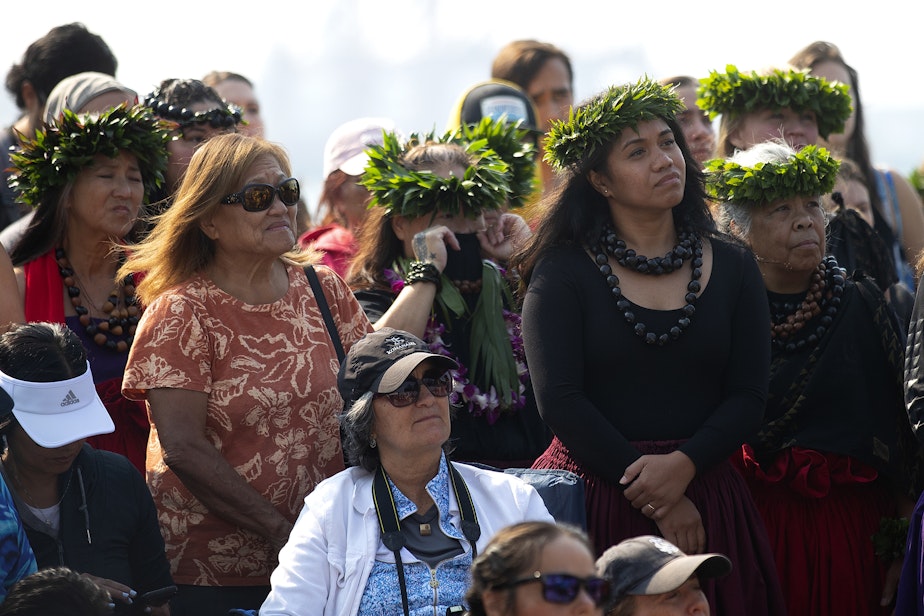
Thompson, the Hōkūleʻa navigator, said strength of the Northwest tribes, and their partnerships with city, county, and state governments is an important coalition on the front lines of the climate crisis encountering the Pacific ocean.
After Thompson speaks at the Burke Museum on Tuesday, the Hōkūleʻa crew will make its next stop at the Foss Waterway Seaport Museum in Tacoma on Wednesday. They will be greeted at that stop by the ke'ala o kamailelauli'ili'i foundation in Tacoma.



